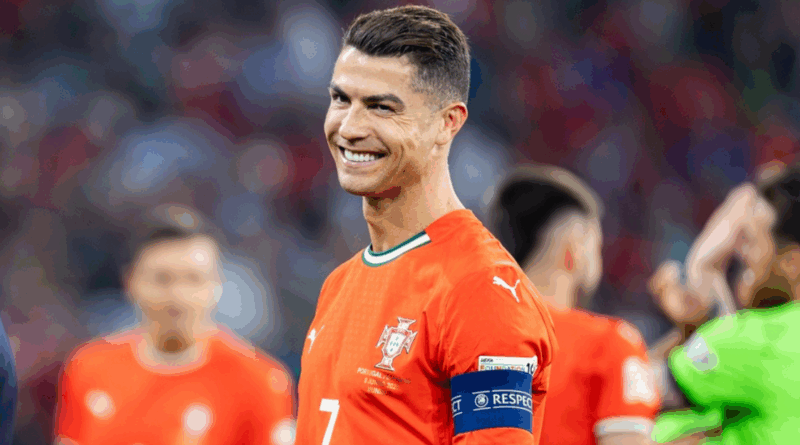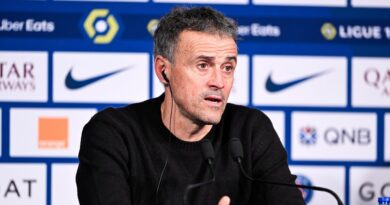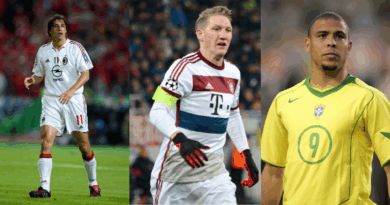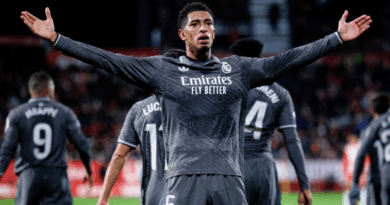Fifa accused of bending rules to keep Ronaldo at 2026 World Cup
Infantino’s choices
The debate over Fifa’s priorities has been building for more than a year. When The Athletic reported that Gianni Infantino planned to place Inter Miami in the 2025 Club World Cup, the announcement drew immediate questions about competitive merit.
Infantino defended the inclusion by calling the MLS side “deserved participants”, even though their season was not yet finished and they later exited the playoffs early.
Analysts widely viewed the decision as an effort to guarantee Lionel Messi’s presence in a tournament that has often struggled to attract global attention.
Because the Club World Cup is typically treated as a preseason event, criticism remained muted at the time. The same cannot be said for the far more visible stage of the World Cup.
Read also: Joe Rogan and Eddie Hearn comment on Paul vs Joshua fight
Red card fallout
During Portugal’s qualifier against Ireland in Dublin, a Video Assistant Referee review upgraded Ronaldo’s yellow card to a red after replays showed him striking Dara O’Shea in the back with his elbow.
According to reporting from several outlets, the incident came with Portugal already trailing, and frustration was evident in Ronaldo’s reactions as he left the field.
Irish manager Heimir Hallgrimsson later told reporters that Ronaldo accused him of influencing the referee, a claim the coach dismissed as a moment of frustration during a tense match.
Under standard Fifa disciplinary rules, violent conduct typically results in a three match suspension. That penalty would normally have removed Ronaldo from Portugal’s final qualifier and the opening two fixtures of the 2026 World Cup.
Read also: U.S. politics discovers football fever
Portugal coach Roberto Martínez initially argued that the contact looked more severe on camera than in reality, then later emphasized Ronaldo’s long record without a red card in international play. That point became central to Portugal’s appeal.
Unprecedented leniency
This week, Fifa’s disciplinary committee announced that two matches of Ronaldo’s three game suspension would be set aside for a year and would only take effect if he committed a similar offense during the probation period.
According to legal analysts quoted in several European news outlets, there have been no comparable exceptions for violent conduct in recent tournaments.
The timing of the decision fueled further scrutiny. Ronaldo had been seen days earlier at a White House dinner attended by Saudi Crown Prince Mohammed bin Salman, Infantino and U S president Donald Trump, a gathering that highlighted his ongoing global influence even at age 40.
Read also: Konaté breaks silence amid Liverpool’s defensive crisis
Critics argue that Fifa appears unwilling to stage its most ambitious World Cup without the sport’s most recognizable figure.
Wider implications
On the same day as Ronaldo’s reprieve, Fifa confirmed that the top seeded nations, including Spain, Argentina, France and England, will be kept apart until the semi finals if each wins its group.
Governance experts interviewed by sports law publications said the arrangement risks reinforcing perceptions that television audiences and ticket revenue now shape competition design more heavily than sporting fairness.
The decision also raises potential procedural consequences. Future cases of violent conduct may cite the Ronaldo ruling as a precedent for reduced penalties, putting additional pressure on disciplinary bodies to justify any inconsistencies.
Read also: Lamine Yamal between expectations, criticism and heavy comparisons
Added context
The controversy arrives as Fifa prepares for the first 48 team World Cup, jointly hosted by the United States, Canada and Mexico. The tournament’s expanded structure, increased travel demands and heightened commercial ambitions have already raised concerns about how the governing body will balance fairness, scheduling and broadcast obligations.
Ronaldo’s status adds another layer. Although now playing in the Saudi Pro League, he remains one of the world’s most recognizable athletes.
His social media following dwarfs that of most national teams, and his presence retains significant marketing value for sponsors, broadcasters and host cities.
Past tournaments provide context for the unease. Fifa has faced previous accusations of shaping competitions to favor high profile players or large market countries, including criticism of seeding adjustments, controversial bidding processes and scheduling decisions made to maximize viewership in key regions.
Read also: Barça midfielder sidelined with muscle strain
Focus on football
With the group stage draw scheduled for December 5 in Washington, D C, public attention is shifting toward the tournament itself. Still, many observers argue that Fifa must demonstrate that its decisions are driven by consistent rules rather than star focused considerations.
Ronaldo, who remarked before the Ireland match that he would try to be a “good boy”, now enters the countdown to 2026 under a level of scrutiny rarely seen so far from the spotlight of an actual World Cup match.




